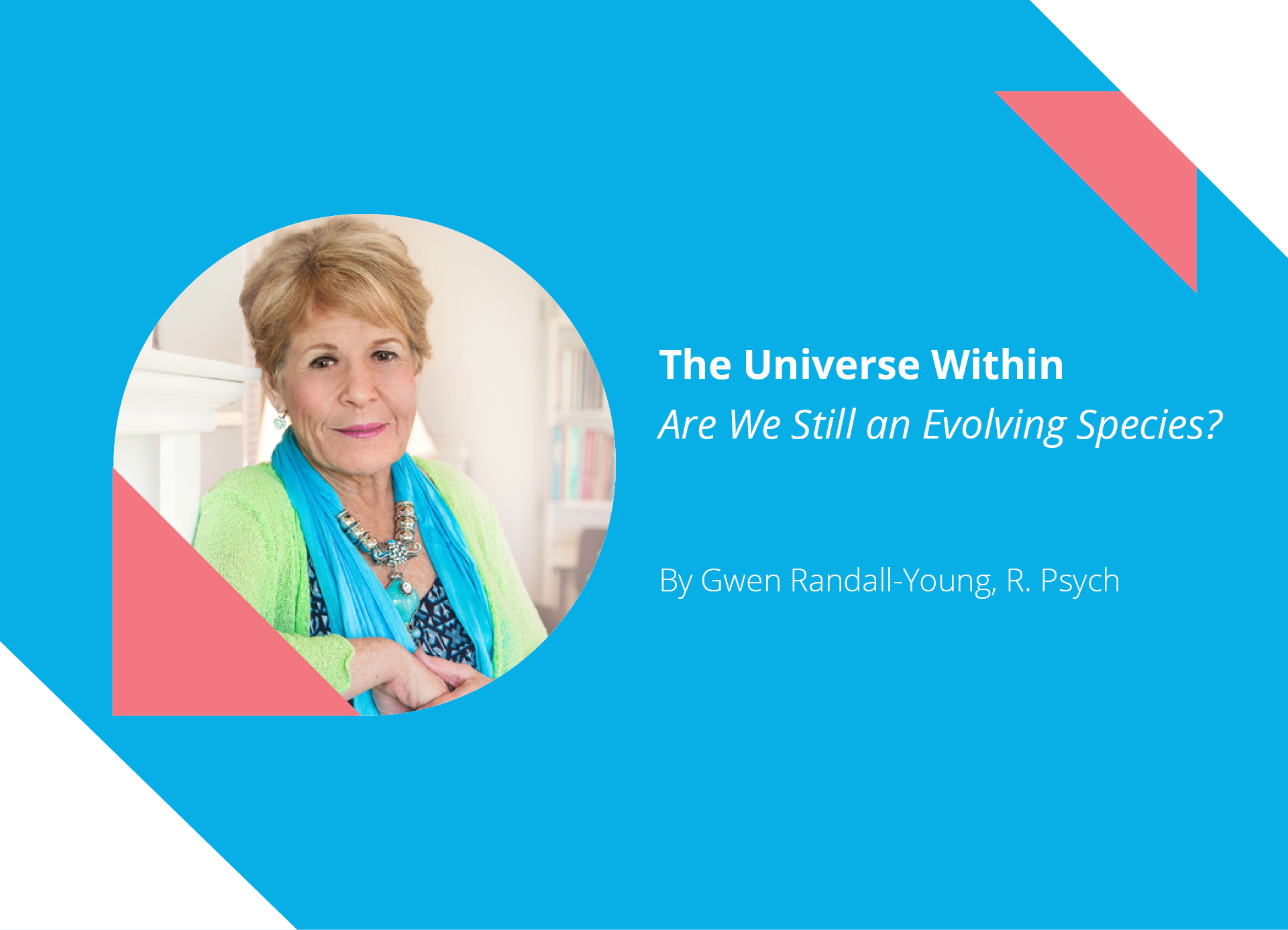
3 minute read
The Universe Within
Are We Still an Evolving Species?
By Gwen Randall-Young, R. Psych
As a psychologist and author, I frequently find myself reflecting upon the human condition. Everyone is unique; millions have gone before us, and millions will follow, yet there never has been, or will be, another just like us.
At the same time, it seems that most of the tension existing between individuals or groups is based on the belief that others should be more like us. What a formula for monumental frustration! Think about it. What an excellent simulation: an exercise one might find at a corporate retreat on learning to work together and creating harmony.
“Surely, we can find another way. Perhaps a different perspective is all we need.”
Build a planet and populate it with a human species in which no two will ever be the same. Then build in a mind set that has high tolerance for similarities, and a low tolerance for differences. Imagine a lab experiment where you put dogs, cats and mice all in the same cage. Of course, there will be chaos and bloodshed, and the biggest and strongest will be in control.
So here we are in the earthly “cage”, so often judging others because they are not like us, struggling for power and control, not doing all that much better than the animals in the experiment.
We see this between parents and children, where the parents want children to be more like them, and vice versa. In adult family relationships, there is often an odd one out who is unaccepted.
It happens in the workplace when an individual is “different”, even though job performance is satisfactory, and of course it happens in communities and on the world stage.
Surely, we can find another way. Perhaps a different perspective is all we need. How different it would be if we had a reverence for all others. Anything less that we see in them is the sum of our judgment or interpretation of them. It is those judgments and interpretations that create separation: without them we would be aware of our oneness.
It takes a big step back to really see this, and most often people are so enmeshed in their own interpretation that they cannot see it. Locked into a “one-interpretation” mode, it is natural to assume, of course, that it is right.
We need to let go of the assumption that our way is right, or better. We are each one of millions. How could it be that one culture, one country, one region or group has all the right answers, and everyone else the wrong ones? No matter how “right” we think we are, the impossibility of it being that simple in such a complex world should give us pause.
It is not about being right, is it? The human experiment could be about how well we can get along and understand each other. As long as we are “right” and they are “wrong”.
When we shift our perspective to one of inclusion, only then will we have taken our next evolutionary step.





